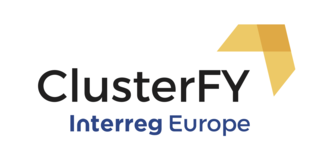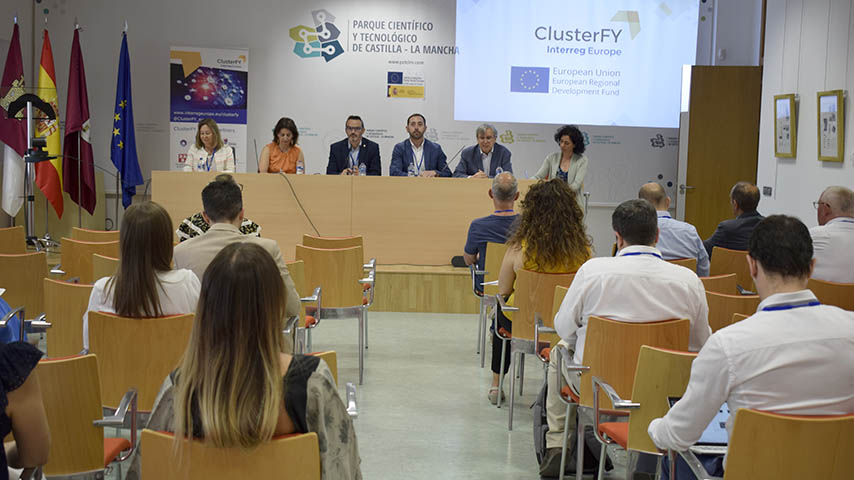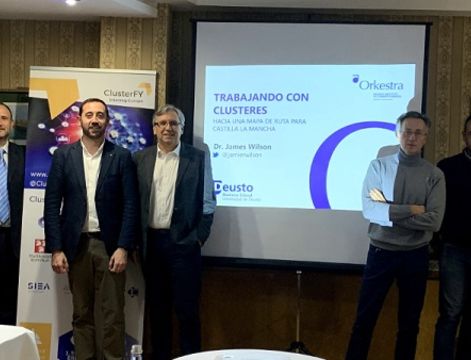Sharing, inspiring, learning. Those are the key words of the ClusterFY Interregional Workshop that was held on 27-29 March 2018 in Thessaloniki, Greece. Several partners of the Interreg Europe ClusterFY project took part in a specially organized Interregional Workshop on the exchange of knowledge on innovation and cluster policy development.
Interregional projects such as ClusterFY involve partners of different types of organizations, and from all over Europe. Therefore, each partner is faced with its own set of regional challenges. Within interregional projects, partners can help each other in tackling those challenges. This allows the partner regions and the project itself to achieve better results.
Challenges in the Region of Central Macedonia
The Interregional Workshop in Thessaloniki addressed the challenges the ClusterFY-partner Centre for Research and Technology Hellas (CERTH) experiences in the Region of Central Macedonia (RCM). Nikos Katsiadakis is project manager for CERTH. Katsiadakis: “Traditionally, the economy of the Region of Central Macedonia (RCM) has no specific ‘champion sectors’. It is therefore difficult to identify broadly acceptable priorities on which to focus our regional economic policy. For example: which types of innovation support measures do we implement in the region?”
According to Katsiadakis, the regional entrepreneurial discovery processes portray a lack of flexibility in public consultation and policy formation. “The majority of Greek regions, including RCM, invested a lot of time to identify the top sectors. This trumped the true purpose of the RIS3-agenda, which is to focus on emerging sectors.”
Cluster management is an exemplary issue. Katsiadakis: “RCM’s CHORUS clean energy cluster has been funded by a past national call and funding programme. Besides CHORUS, regional authorities don’t have any previous experiences with cluster support mechanisms and knowledge on the respective regional policy tools. Based on these challenges, it seems as though RCM’s stakeholders and authorities consider clusters mainly as temporary funded projects. However, clusterization is continuous – involving many actors of the regional economy.”
Finding solutions together
The main purpose of the workshop was to exchange knowledge on innovation and cluster policy development. Attending ClusterFY partners were the Agency of Science, Innovation and Technology (MITA) in Lithuania, the Hudiksvall Municipality in Sweden and the Northern Netherlands Alliance (SNN). All of these partners shared their particular expertise and method of working on the issues at stake.
Rima Dijkstra is project coordinator for MITA, which is lead partner in the ClusterFY project. Dijkstra: “It came to our attention that the region of Central Macedonia was struggling with its cluster policy and -development. We are partners, so these challenges are relevant for the ClusterFY-project at large. The Interregional Workshop in Thessaloniki was specifically designed as a reaction to the circumstances. It was neither part of our original work plan, nor is it a traditional mode of working within Interreg. But we did it anyway – successfully.”
Regional programming of European funds
During the workshop, Karin Nygård-Skalman, a representative of the Hudiksvall Municipality in Sweden, outlined the role of clusters in regional development. “We discussed our regional innovation programme and how programming of European funds takes shape. Cluster management is very important in this regard, as we utilize clusters as intermediate bodies to reach SMEs.”
The Lithuanian partner MITA also focuses on cluster policy and -development. Rima Dijkstra: “Lithuania is a young economy, but we have good policy instruments in place to support cluster development. We presented new possibilities within ERDF and elaborated on other programs that could help boost the development of clusters in the region of Central Macedonia.”
The Northern Netherlands Alliance presented its take on the strategy and process of programming European funds in the region. Albert Haan, senior strategist on EU programming in the Northern Netherlands: “During the Interregional Workshop, the Northern Netherlands discussed different and even new possibilities for regional programming of European funding. During the workshop, we emphasized the importance of programming with strong stakeholder involvement of businesses, universities and civil society organizations. We introduced, for example, our ERDF ‘Open Innovation call’, which is a novel call to businesses and knowledge centres to collaborate in building a strong innovation climate.”










